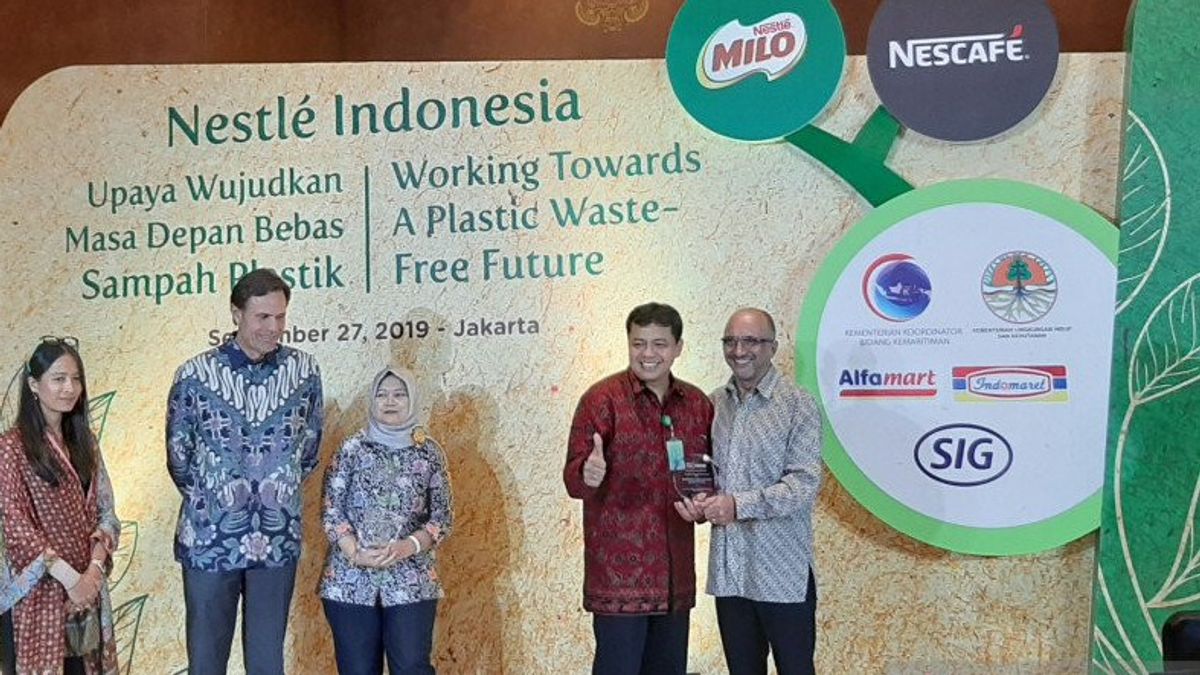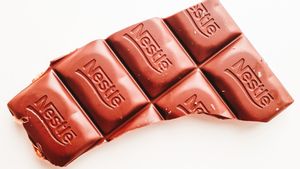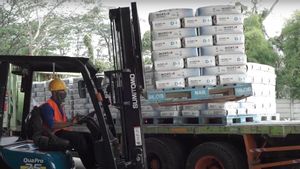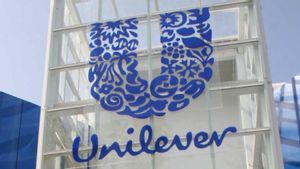JAKARTA - PT Nestle Indonesia admits that not all of its products meet applicable health standards. The number reaches 30 percent. However, the analysis of these products does not include those for children, special nutrition, pets, and coffee products.
"When viewed from our overall product portfolio based on total global sales, less than 30 percent do not meet strict external health standards", said Nestle Indonesia's Head of Corporate Communication Stephan Sinisuka when contacted by VOI, Tuesday, June 8.
Stephan said that products that fall into the category of not meeting external health standards are strictly dominated by indulgent or indulgent products.
"Such as chocolate and ice cream, which can be consumed in sufficient quantities as part of a healthy, balanced, and enjoyable diet", he said.
Regarding the Financial Time report which stated that 60 percent of Nestle's products did not meet health standards, Stephan emphasized that the study did not include the entire product portfolio in the country.
"The report is based on an analysis that covers only about half of the global sales portfolio of our products in Indonesia", he explained.
Nestle has a program for product evaluation
Stephan said that currently, his company has an internal program to update the nutritional standards of products manufactured by Nestle. This program aims to ensure that the company's products can meet nutrition and support a balanced community diet.
"Nestle is constantly evaluating our product portfolio and renovating and reformulating our products", he explained.
According to Stephan, Nestle has also reduced sugar and salt in its products in the last two decades. In fact, the company has also launched thousands of products for children and families that meet stringent external nutritional standards.
"Since 2017 we have succeeded in reducing the sugar content in our products by 28 percent. Nestle has projects within the company to update its nutritional, health, and wellness standards", he explained.
Stephan said he believes Nestle's portfolio of brands and product categories contributes positively to the health and well-being of the communities it serves around the world.
SEE ALSO:
"In Indonesia, we produce and distribute products by the provisions of the legislation in force in Indonesia, including the nutritional, quality, and safety requirements of BPOM (National Agency of Drug and Food Control), as well as Halal regulations", he said.
Nestle is also committed to ensuring the quality and safety of products sold to consumers. As part of its business activities, Nestle also evaluates its product portfolio and renovates and reformulates its products.
"Our goal is unchanging and clear, we will continue to make our products tastier and healthier. And when we do, we will communicate it transparently", he said.
Previously, Financial Time reported Nestle's admission that about 60 percent of its products were unhealthy. Only about 37 percent of food and beverage products are included in the healthy threshold category.
The threshold for declaring healthy and unhealthy is determined by a certain score. The Australian health system defines a product as healthy if it gets a score of 3.5, and nearly 70 percent of Nestle products fail to comply.
Products that do not meet the threshold are 96 percent of Nestle drinks (excluding pure coffee). Then, 99 percent of Nestle's candy and ice cream portfolio.
The English, Chinese, Japanese, Arabic, and French versions are automatically generated by the AI. So there may still be inaccuracies in translating, please always see Indonesian as our main language. (system supported by DigitalSiber.id)


















